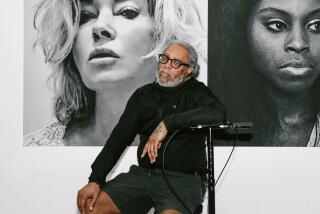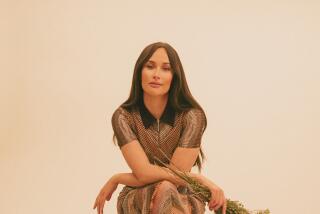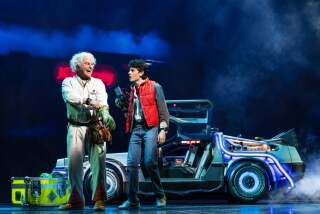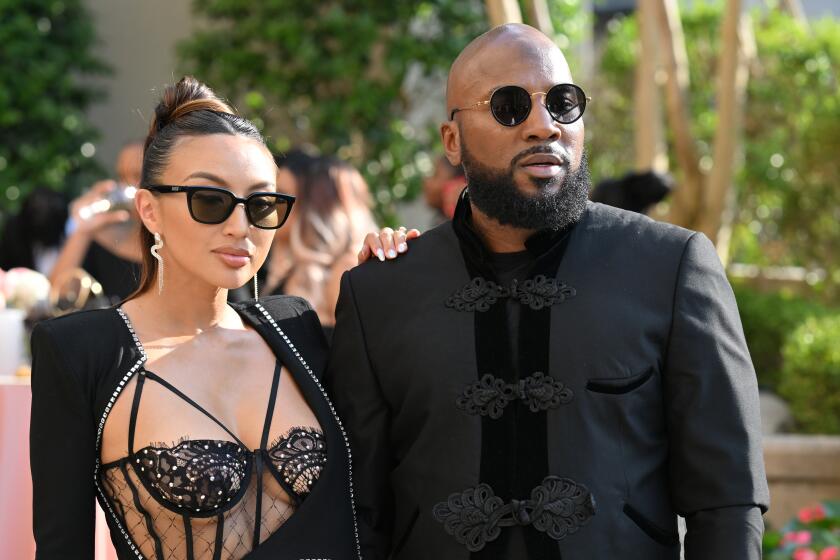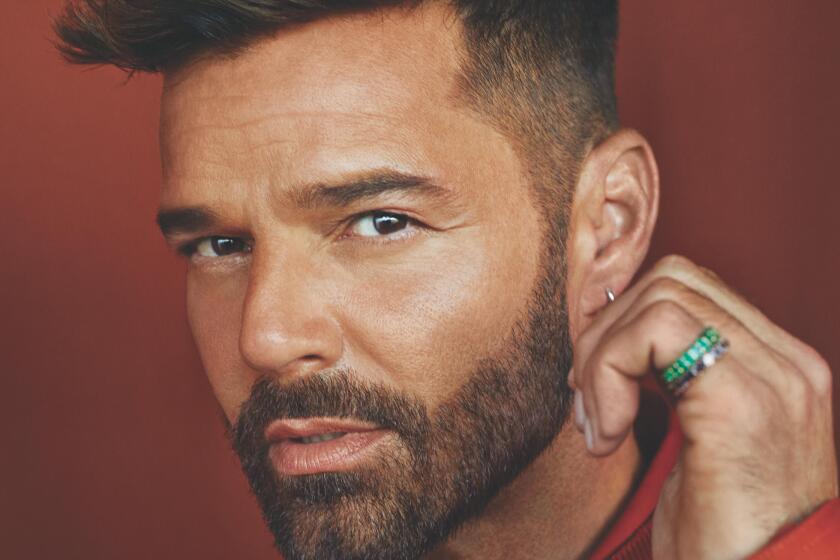John Legend plays with emotions on ‘Love in the Future’
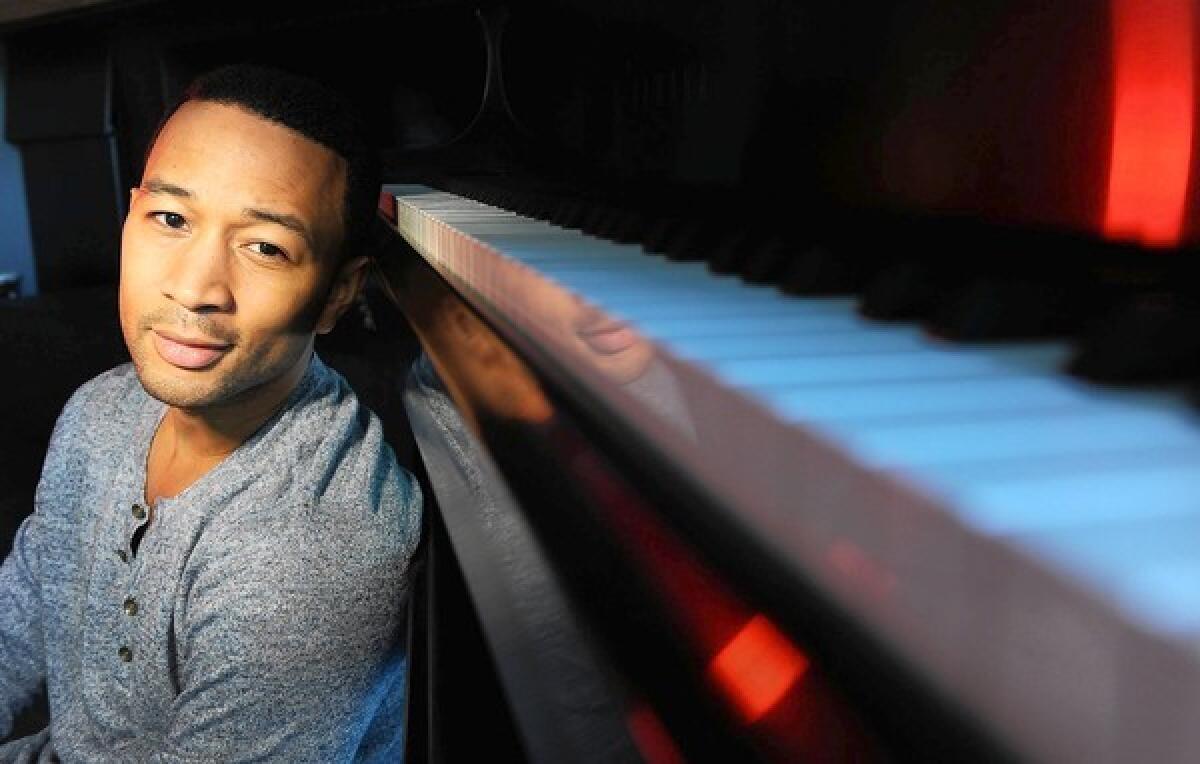
There’s one second of sound on John Legend’s new album, “Love in the Future,” that sums up his current artistic mission. It’s on the delicate, gloomy track “Asylum,” and the sound is a snare drum. Or rather a blast of raw, percussive white noise that punctuates Legend’s future-soul tale of a love “where we both go crazy.”
“We were leaning toward progressive, cool samples with space and minimalism,” Legend said. “How do you refresh a genre that’s so traditional and classic?”
Although Legend is an R&B artist indebted to Sam Cooke’s pristine phrasing and white-shoe piano ballads, his “Love in the Future” sounds remarkably modern. Almost a decade after his 2004 debut, “Get Lifted,” made him a pop star and put him at the vanguard of grown-man R&B, Legend (born John Roger Stephens) is figuring out how an old genre relates to new ideas about love.
TIMELINE: Summer’s must see concerts
Five years after his last album of original material (his 2010 collaboration with the Roots, “Wake Up!,” was a collection of ‘60s and ‘70s covers), Legend is asking what constitutes soul music in a time when technology can connect us in undreamed of ways but also distract us from real emotion.
“That’s part of what we were trying to answer with this album,” he said of his fourth solo album. “What’s the place for soul in 2013? This album is our answer.”
From the back porch of his slickly Zen Hollywood Hills home, Legend has a wide view of the yellow hills in Cahuenga Pass. His adorably rotund bulldog Puddy scampers around his feet as Legend talks about his new album. He looks relaxed, because he took his time making this one.
“Love in the Future” was supposed to come sooner. After a successful run with the U.K. quiet-storm combo Sade, Legend had booked a high-profile fall 2012 arena tour (including a stop at Staples Center), tied to his long-expected follow-up to 2008’s “Evolver.” But he regretfully scrapped the tour to finish work on the record, which tacked on an additional year’s wait for a new album of original material.
RELATED: Best albums of 2013 so far | Randall Roberts
It was a rare crack in the armor for the consummately professional 34-year-old singer (and former management consultant).
“I had to choose the lesser of two evils,” he said, sounding genuinely pained at the decision. “I hated the idea of letting fans down. But I’m defined by the quality of the experience, on record and in performances. I wanted to go out with new music, but I couldn’t go out without my best.”
But if it took an extra year to get right, it shows in the record. “Love in the Future” can be read as a kind of distant cousin of Kanye West’s “Yeezus,” and not only because West (a longtime Legend collaborator) co-executive produced the album with fellow Legend-vet Dave Tozer. If the wildly experimental, angry “Yeezus” is pure id and ego, “Love in the Future” is the grown-up superego tamping that raw emotion down while trying to make sense of it.
“Who Do We Think We Are” has some of ‘70s soul staple Donny Hathaway’s incandescent glow, but it’s ringed in a psychedelic digital fog, and it wraps up with a cameo from rapper Rick Ross. Lead single “Made to Love” is built on crunchy distorted drums and scattered vocal echoes (courtesy of New Zealand singer Kimbra) evoking classic house music.
Even the most straightforward cuts, such as the singer-songwriterly “All of Me,” have sly, uncanny production flourishes in the margins.
“There’s actually a lot of ‘70s prog rock elements on this album; the guitars on ‘Asylum’ are very ‘Dark Side of the Moon’,” said Tozer. “The productions have to be in support of the songs first, and John’s always had good writing, but now he wanted to challenge himself. ‘Made to Love’ is the most progressive single he’s ever released. ‘All of Me’ is a pure piano ballad, but we also had to add some robot voices on there.”
Legend’s voice is as un-robotic as ever, though, and his well-seasoned vocals and songwriting fully inhabit and cut through the sometimes alien arrangements. “Future’s” 16 songs are investigations into the pleasures, pains and transformations of a long-term relationship — a purposeful counterpoint to the rallying-cry political overtones of “Wake Up!”
For Legend, who recently announced his engagement to model Chrissy Teigen, the album is unflinching in its look at intimacy in general and his own romantic life in specific.
“This long-term relationship changed me,” he said. “I hadn’t been with anyone for a long time, and I’d definitely enjoyed my bachelor status. This is my first album with the benefit of that relationship. I’m much more emotional and passionate in my musical life than my personal life, and these songs are a self-examination and a way for me to get there.”
It also assesses how modern American life has changed what intimacy looks and feels like. “Future” continues from a long R&B legacy of album-length investigations into affection — Marvin Gaye’s “Here, My Dear” and Stevie Wonder’s “Songs in the Key of Life,” among them.
But the mix of soulful performances and digital, detached productions (courtesy of West, Tozer and a volley of younger hip-hop producers such as Hit-Boy and Da Internz) is a new setting for Legend. It places his traditional soul influences in a fractured, sometimes chilly setting. The sonic effect evokes a gulf between our old-fashioned need for love and the ways contemporary society seems tilted toward isolation and ephemerality.
For Legend, there’s something political in that. Where “Wake Up!” used civil rights-era soul’s potency as a call to political action, “Love in the Future” uses the universal experience of relationship struggles to figure out our deeper motivations.
The singer believes songs about the travails of love can be a starting point for empathy. After several recent high-profile incidents of racially charged violence, that’s something America is desperately in need of today.
“Have you seen that film ‘Fruitvale Station’? The film is beautiful because its shows Oscar Grant as a human who didn’t deserve to die,” Legend said. “Part of the problem is we attach stereotypes to young black men walking in the dark. You don’t see him as human, you don’t know his hopes and fears. Art has a way of making you see other people’s humanity.”
More to Read
The biggest entertainment stories
Get our big stories about Hollywood, film, television, music, arts, culture and more right in your inbox as soon as they publish.
You may occasionally receive promotional content from the Los Angeles Times.
